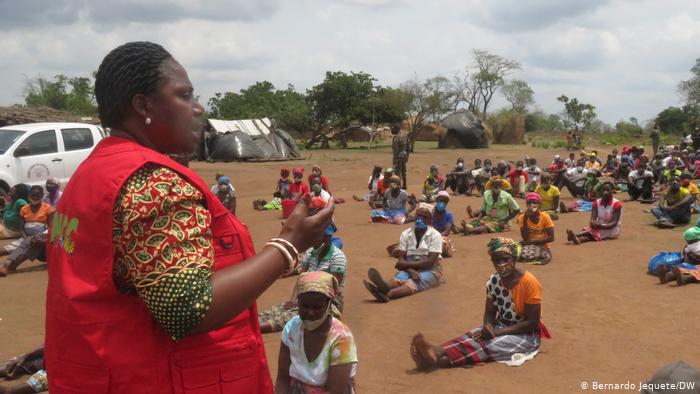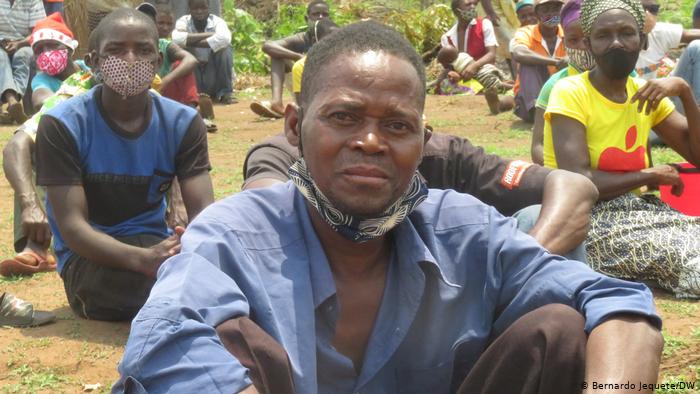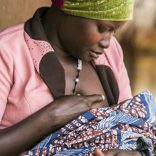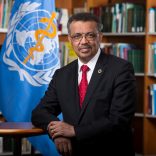Mozambique: Notable shift in displacement dynamics, steady return of IDPs to their areas of origin
Mozambique: Manica students are not attending classes for fear of attacks

Governor Francisca Domingos Tomás. [Photo: DW]
- Students in Manica province report that they have not yet returned to school for fear of further attacks by the Renamo Military Junta. Some schools in high-risk areas have never re-opened, but there are options for those displaced.
Eleven primary and secondary schools in Gondola district, Manica province, in central Mozambique, will not resume classes this year because they are in areas affected by attacks led by the self-proclaimed Military Junta of the Mozambican National Resistance (Renamo).
The Education and Human Development Sector in Manica province reports that more than 5,250 students and 131 teachers are affected.
Attacks by the self-proclaimed Renamo Military Junta have displaced thousands of people in Manica and Sofala provinces. In Manica, almost 700 families are directly affected by the security crisis in Mucorodzi, Madziachena, Macate, Muda-Serração and Pinanganga districts, among others.
Grade 10 student Josefa Zarias, who was welcomed into the community of Massequesse in Muda-Serração, calls on the Renamo Military Junta to declare a truce, saying the attacks create the climate of fear which is interrupting access to education for many young people.
Insecurity in schools
The 16-year-old student said he was not going to school because of the coronavirus and “this war here” that “started last year this October and November”.
“So, we are really going crazy, because when people go without studying, they do not do well. I would like the government to speak to this gentleman who is waging war, to agree with him not to continue this war. Or listen to what he wants. The whole problem will be solved by talking. When he makes war, he burns cars, that doesn’t feel right,” he complains.
DW interviewed another student, Johane Fernando, who lives in Gondola. He characterises the situation in Manica as “dramatic”, and says that he and his brothers have not been to school since last year because of the attacks.
“The situation is bad. I have my brothers here, and they don’t go to school because of this war and because of fear too. I would like the government to maintain security and help people walk at ease on the road to go to school,” he requests.

FDS intervention
Mario Fernando, father of a student in Gondola, asks the government to put an end to the threats from the self-proclaimed Renamo Military Junta, so that children can continue theire education. He believes that the future of children depends on studying.
He would like the government to station the Defence and Security Forces in schools to guarantee the safety of the children, and argues that “without this, our children will be marginalised, because we do not know when will this end”.
“Children in Grades 1 and 2 especially do not know how to evade the wrongdoers, so it is necessary to create conditions for there to be security in the region, to guarantee the continuity of study, which they abandoned because of the attacks,” he protests.
João Tricano, spokesman for Education and Human Development in Manica, said that two accommodation centres had been provided for Grade 10 students so they could continue to learn, but many were afraid to return to school because of the attacks.
“Conditions were created in two accommodation centres for these children who moved from conflict zones. There is the Massequesse centre in Muda-Serração in the Chibuto 2 area, and another in Vila de Gondola,” he explains.
“There are a total of 600 students there, according to our records up until last week. But this number can change because, because more children are always showing up, and we survey those who are studying,” Tricano says.
Invitation to the DDR process
The governor of Manica, Francisca Domingos Tomas, condemns the incursions as creating a setback for Mozambican families as well as for the country’s development, inviting the leader of the self-proclaimed Military Junta to join the Disarmament, Demobilization and Reintegration (DDR) process.
“We are also going to place these children in other schools that will be able to resume face-to-face classes, because they were certified as totally [Covid-19] safe. In the areas where they cannot go, it is not safe,” the governor explains.
These families fled their home regions leaving all their possessions behind, including household goods, agricultural production, domestic animals, clothing and other belongings. They are restarting life from scratch.












Leave a Reply
Be the First to Comment!
You must be logged in to post a comment.
You must be logged in to post a comment.